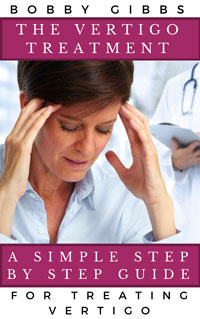In a previous post, we looked out how anxiety and dizziness can share a relationship with each other. The focal point this time around will be based upon anxiety and depression.
As these are 2 conditions that are common in occurrence for those suffering from vertigo and vestibular disorders, it’s essential that we grasp a solid understanding of how we can overcome situations that can overwhelm us. By calming and relaxing our nervous system, using the methods presented below, it will help the mind and body to become more balanced and aligned, enhancing emotional wellbeing.
1. Mindfulness Meditation
As we partake in various daily activities, stressors throughout the day can manifest within the mind. These can range from the nagging boss at work, to unpleasant weather conditions, which can result in dizziness.
By dedicating at least 10 minutes a day to simply sitting on a chair and being mindful of these thoughts and stressors, we can reduce the stress and negative effect they have on us. Instead of engaging in the negative emotion or thought that is presented to us, if we choose to observe and become aware of its existence, this will allow us to have better control of our thoughts.
With this, negative thoughts will no longer have such a strong influence over the mind and body, helping us to attain a state of happiness and wellbeing.
2. Abdominal Breathing
This is a simple and powerful breathing exercise that you can use to reduce anxiety and depression. During periods of strong anxiety, resulting in panic attacks and hyperventilation (rapid breathing), our stress hormones are heightened and we experience difficulty calming ourselves. By inhaling deeply and slowly through our nose for a count of 4 seconds, pausing for a brief moment, and then exhaling for a count of 8 seconds through our mouth, this allows us to activate our parasympathetic nervous system.
In doing so, we counteract stress hormones such as cortisol, created by the sympathetic nervous system (fight or flight response) and induce a soothing effect on the body. Abdominal breathing also dilates veins within our body, as during states of panic our veins become constricted. This widening of the veins aids in further calming the body, preventing rapid heart beating, thus reducing anxiety and helping depression.
3. Supplementing With B Vitamins
Being deficient in certain B vitamins such as vitamin B12 or folic acid can trigger anxiety and depression. Taking a B complex or supplementing with B vitamins such as vitamin B12 can improve our mood, as they release neurotransmitters such as serotonin and dopamine.
4. Mood Boosting Foods
Certain foods that we consume elevate our mood and emotional state. These include the following:
Bananas
Potatoes
Sardines
Chia seeds
Asparagus
Tuna
Chamomile tea
Avocados
Pasta
Cashew nuts
Turkey
Flax seeds
Sweet potatoes
Mackerel
Green tea
Walnuts
Grass-fed beef
Garlic
Salmon
Oatmeal
Oranges
Oysters
Berries – blueberries, strawberries, cranberries etc




